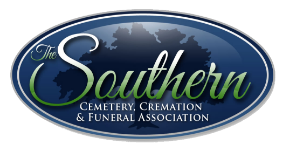Finding a Support Group
Each individual grieves in his or her own way. While many people will find that they do not need or want help with their grief, some people will seek individual counseling. Others want group support. Every loss is different in some way, but grief often shares common characteristics of leaving people feeling isolated by feelings of sadness and loss. Through support groups, individuals can find validation and feel like they are not alone.
Your local hospice is an excellent resource. Under the Medicare Hospice Benefit, hospices provide bereavement support for at least a year to families of patients they have served. They also provide bereavement services to partners and close friends. Often, hospices provide this support to people in their community even if the death did not occur with hospice care. For example, the bereaved person may have lost a family member in an accident or because of an act of violence. The bereavement coordinator at the hospice can provide information about what support services are available or recommend local resources existing within the community. Funeral homes may also have aftercare or bereavement support. Some funeral homes sponsor support groups. If they don't, they also are often sources for information referral. Many faith communities also offer support groups for grieving people.
There are many national groups that sponsor local chapters offering support groups. For example, The Compassionate Friends (www.compassionatefriends.org) is a national, non-profit network for bereaved parents and siblings. The National Alliance for Grieving Children (www.nationalallianceforgrievingchildren.org) offers a center locator which can connect families with support in their community. Other groups, such as AARP (www.aarp.org/family/lifeafterloss) and The National Widowers’ Organization (http://www.nationalwidowers.org) serve surviving spouses. There are organizations that offer support after specific losses, such as the American Foundation for Suicide Prevention (www.afsp.org). The Association for Death Education and Counseling (www.adec.org) has a searchable database of thanatologists, that is, counselors who are trained to work with the dying and bereaved.
It is more and more common for people to become part of virtual support groups by joining an online grief group, and many of the groups referenced above also provide online group support for grief. There are also specific online support groups for adults, children and teenagers. One such online grief support network can be found at GriefNet (www.griefnet.org) for adults, and for children, www.kidsaid.com. While grief experts have mixed opinions about online support groups replacing face-to-face interaction, most agree that they can be a valuable tool if carefully monitored by professional counselors.

